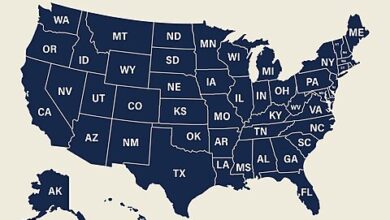George Will: Overcoming Constitutional Queasiness to Head Off a Fiscal Crisis

Conservative Washington Post columnist George Will wrote about an idea I’ve been pitching for several months: a BRAC‐like fiscal commission to help Congress stabilize the growth in the debt. In his column, titled “A fiscal crisis awaits. Here’s a provocative idea for heading it off,” Will grapples with the core objection conservatives are prone to raise over empowering an unelected body with vast powers. He writes:
“This nation is slouching into the most predictable fiscal crisis in its history. There is no mystery about what the crisis is; there is clarity about what broadly must be done. There is, however, fatalism about the political system’s inability to do it. The fatalism is refutable, but with a mechanism that should make constitutionalists queasy: Should we protect the nation’s fiscal future by further diminishing Congress, which would exacerbate the braided problems of a rampant executive and an unaccountable administrative state?”
I am grateful for George Will boldly hitting the nail on the head. It won’t be easy to convince Congress to empower an independent, unelected body to propose sweeping changes to major entitlement and revenue programs. Doing the right thing is hardly ever easy. What will be even harder is trying to course‐correct when this fiscal train goes off the rails. If something cannot go on forever it will stop.
Conservatives feel like they’ve been burned by Congress delegating too much power to the executive and to unelected regulatory bodies. And they’re not wrong. It’s one thing to establish independent bodies to further burden the American people with new regulations and more government spending. It’s quite another to set up an independent commission to help Congress avoid driving us into a catastrophic debt crisis or slow‐walk us into becoming a nation in decline.
As the old adage goes: desperate times call for desperate measures.
A fiscal crisis is an almost certain outcome of the current unsustainable budget trajectory. Who will be willing to lend more than $100 trillion to the U.S. federal government over the next three decades—a sum that’s more than four times the amount that investors have been willing to lend to this government over its entire history?
The major drivers of this brewing fiscal storm are beloved entitlement programs, Medicare and Social Security, whose constituencies will only grow bigger as time goes on. The nation is aging, and older constituents also happen to have the financial resources and the time to amplify their voices in Washington. The fact that 95 percent of long‐term U.S. unfunded obligations originate from Medicare and Social Security spending growth be darned, “don’t touch seniors’ benefits”, those running for office are told.
An understanding of how incentives work dictates that asking politicians to self‐sacrifice for the greater good is a futile attempt. Will suggests:
“Adopting Boccia’s recommendation — “a new mechanism for forcing action” — would be an admirable acknowledgment by Congress of an unadmirable weakness.”
Without reforming underfunded entitlement programs, the best case scenario is a much slower growing U.S. economy that blocks pathways of opportunity for people to rise above the hand they were dealt at birth. This would alter the very fabric of our nation, turning an exceptional country, that churns out entrepreneurs and innovators like no other, into yet another gerontocratic nanny state. The old country has plenty of those.
In the worst case scenario, America may be staring down the barrel of a fiscal crisis that nobody knows when it will trigger. But when it does, the outcome will be catastrophic, likely making the economic repression of the financial crisis of 2008 and the post‐pandemic inflation look like blips.
The magnitude of America’s fiscal challenge and the political sacrifices it will demand hasn’t escaped the watchful eyes of the world’s major credit agencies. Fitch Ratings followed S&P’s 2011 decision just last week, downgrading U.S. Treasury bonds from AAA to AA+. More downgrades could lie ahead.
A BRAC‐like fiscal commission has the potential of overcoming the polarization and policy gridlock plaguing this Congress, addressing directly “the expected fiscal deterioration […], a high and growing general government debt burden, and the erosion of governance…” Fitch cites in its rating decision.
The cure in this case cannot be worse than the disease. Delegating broad legislative authority to a fiscal commission may seem like a step too far. Why not just ask the experts for advice and leave it to Congress to enact reforms at will, or at least to take an up‐or‐down vote? Congress has tried this approach before, and not just once. It’s failed nearly every time. George captures my views perfectly when he writes:
Boccia has the courage of her conviction that the alternative is even worse than this aspect of her proposal: The commission’s recommendations must be “self‐executing upon presidential approval, without Congress having to affirmatively vote on their enactment.” With a bracing candor reminiscent of another realistic child of Italy (Machiavelli, in “The Prince”), Boccia says: Making the commission’s recommendations self‐executing without Congress’s having to endorse them is necessary to give legislators “political cover to vocally object to reforms” vital to the national interest but impossible to enact by normal procedures.
In the words of Machiavelli, in “The Prince”: “Wisdom consists of knowing how to distinguish the nature of trouble, and in choosing the lesser evil.”





